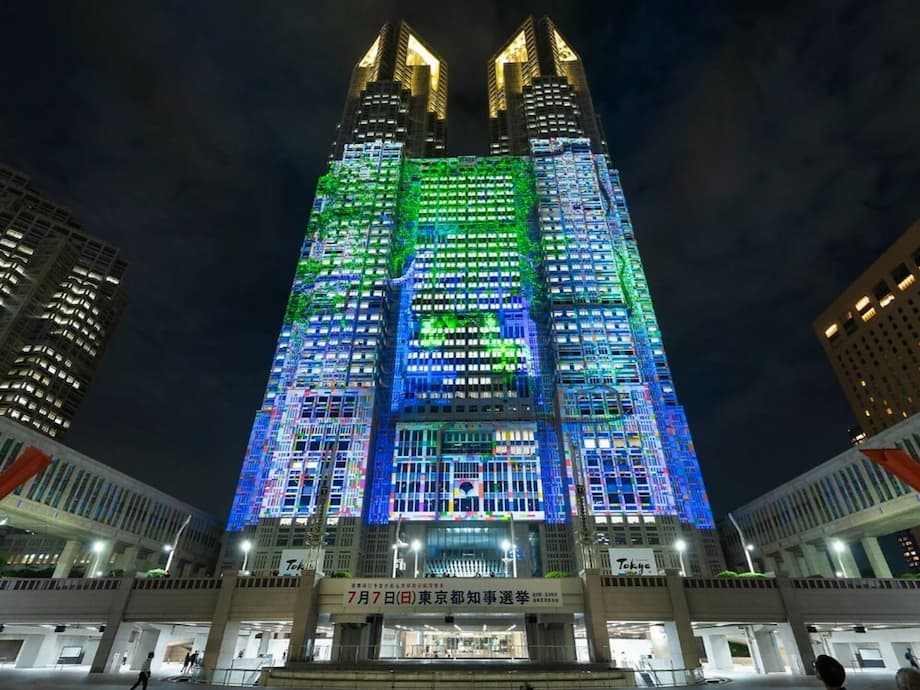Tokyo: A City of World Records and Unmatched Trivia
Tokyo, Japan’s vibrant capital, is a city where tradition and innovation collide in spectacular fashion. Beyond its neon-lit streets, historic temples, and bustling crowds, Tokyo is a city of superlatives—home to world records, unique cultural quirks, and stories that surprise even seasoned locals. From the world’s busiest train station to culinary extremes and Olympic glory, Tokyo’s trivia is as diverse as its neighborhoods. This article explores the city’s most fascinating facts, record-breaking achievements, and the stories behind them, offering a comprehensive look at what makes Tokyo truly one of a kind.
World Records That Define Tokyo
Tokyo’s reputation as a record-breaking metropolis is well-earned. The city holds numerous world records across a variety of fields, from transportation and art to sports and nightlife.
Transportation: The Pulse of the City
Shinjuku Station stands as the world’s busiest train station, with millions of passengers passing through its labyrinthine corridors every day. According to Time Out Tokyo, the city boasts 497 train stations, with Shinagawa as the oldest (dating back to 1872) and Toranomon Hills as the newest. The Ginza Line, opened in 1927, is the oldest subway line in East Asia, while Roppongi Station plunges 42 meters below sea level, making it the city’s deepest.
Tokyo’s public transit is not just extensive—it’s also the site of unique records. In 2024, rail enthusiast Shona Noguchi set a Guinness World Record by visiting all 285 Tokyo subway stations in just 13 hours and 53 minutes. Noguchi’s feat highlights the operational precision and complexity of Tokyo’s rail network, which seamlessly connects the metropolis and its suburbs.
For those seeking more whimsical records, Tokyo is home to what is likely the world’s shortest escalator, located in a mall near Kawasaki Station. At just three steps long, it’s a quirky testament to the city’s penchant for the unusual.
Art, Nightlife, and Culinary Extremes
Tokyo’s cultural scene is equally record-breaking. The teamLab Planets museum holds the title of the world’s most visited museum dedicated to a single art group, drawing crowds with its immersive digital installations. Meanwhile, Shinjuku Nichome boasts the highest concentration of LGBTQ+ venues in the world, reflecting Tokyo’s vibrant and diverse nightlife.
Golden Gai, a legendary nightlife district in Shinjuku, packs approximately 280 tiny bars into a few narrow alleys. Each bar has its own unique theme and clientele, making it a must-visit for those seeking an authentic Tokyo experience.
On the culinary front, Tokyo is unmatched. The city is home to over 100,000 restaurants and holds more Michelin stars than any other city globally. Komagata Dozeu, operating since 1801, is likely Tokyo’s oldest restaurant, while Kitafuku Ginza is the world’s most expensive Michelin-starred establishment, offering a crab course for a staggering ¥330,000. Ramen lovers can choose from over 2,100 shops, but convenience stores are even more ubiquitous, with nearly 6,000 locations citywide.
Sports and International Events
Tokyo’s sporting achievements are legendary. The city has hosted the Olympics twice—first in 1964 and again in 2020 (held in 2021 due to the pandemic). The 1964 Games were a milestone, introducing advanced timing and scoring technologies and setting new Olympic records in 27 of 36 track-and-field events. The 2020 Tokyo Olympics saw a flurry of world records, including:
- Karsten Warholm’s 400m hurdles in 45.94 seconds
- Sydney McLaughlin-Levrone’s 400m women’s hurdles in 51.46 seconds
- Yulimar Rojas’s triple jump of 15.67 meters
- Tatjana Schoenmaker’s 200m breaststroke in 2:18.95
- Japan’s judo team winning a record nine gold medals in a single Olympics
Swimming stars like Ariarne Titmus and Caeleb Dressel also made history in Tokyo. Titmus won gold in the 200m and 400m freestyle, while Dressel took home five gold medals and set two records, including a world record in the 100m butterfly.
The Tokyo Marathon is another global event that draws tens of thousands of runners. In 2023, nearly 3,000 athletes earned the prestigious Six Star Medal—awarded to those who complete all six World Marathon Majors—setting a Guinness World Record for the most medals awarded at a single marathon.
Quirky and Lesser-Known Tokyo Trivia
Beyond the headlines, Tokyo is a city of delightful oddities and hidden gems. These facts reveal the city’s playful side and its knack for the unexpected.
Godzilla’s Stomping Ground
Few cities can claim to have been destroyed by a movie monster as many times as Tokyo. Godzilla, the iconic kaiju, has attacked Tokyo in films at least 30 times, with neighborhoods like Nagatacho, Ginza, and Shinagawa bearing the brunt of his cinematic rampages. The city has embraced its monster heritage, with a Godzilla head towering over the Toho Cinema in Shinjuku.
Geography and Urban Wonders
Tokyo’s geography is full of surprises. About 20% of the city’s 23 wards are below sea level, protected by an intricate system of levees and floodgates. The Ogasawara (Bonin) Islands, located 1,000 kilometers south of central Tokyo, are technically part of the metropolis, offering a tropical escape accessible by a 24-hour ferry ride.
Sangenjaya, once a quiet residential area, has transformed into one of Tokyo’s hippest neighborhoods, celebrated for its retro charm, trendy cafes, and vibrant nightlife. Meanwhile, the Bulgari Hotel Tokyo boasts the city’s most expensive suite, commanding $30,000 per night and offering panoramic views of the skyline.
Academic and Sporting Achievements
The University of Tokyo, Japan’s premier academic institution, has its own share of trivia. The university played a pivotal role in the early history of Japanese football, with its team winning the Emperor’s Cup multiple times. It is also recognized as the birthplace of Japanese baseball and has produced a Guinness World Record holder, Hiroyuki Takada, who ran a marathon carrying a 20-pound backpack.
The university’s sports clubs are known for welcoming newcomers, often composed entirely of students with no prior experience. This inclusive approach has led to unexpected victories, such as overtaking Kyoto University in the 51st Seven Universities Athletic Meet in 2012.
Pop Culture and Iconic Moments
Tokyo’s influence extends into pop culture and global celebrations. In 2021, Tokyo Tower was illuminated in the Los Angeles Angels’ colors to honor Shohei Ohtani’s MVP season. Ohtani, a baseball superstar, set two Guinness World Records: being the first MLB player to achieve 100+ innings and 100+ strikeouts as a pitcher, and 100+ RBIs, hits, and runs as a batter in a single season; and being the first player to start the MLB All-Star Game as both a pitcher and designated hitter. The tower’s light-up event was live-streamed, and special merchandise was released to commemorate the occasion.
Tokyo’s Sporting Legacy: From the Olympics to the World Stage
Tokyo’s status as a global sports hub is cemented by its history of hosting major international events. The 1964 Olympics marked Japan’s reemergence on the world stage, introducing new technologies and sports like judo and volleyball. The 2020 Games, despite pandemic challenges, showcased Tokyo’s resilience and organizational prowess, with athletes breaking records and inspiring millions worldwide.
Looking ahead, Tokyo will host the World Athletics Championships in 2025, further solidifying its reputation as a city where sporting history is made. TDK Corporation, a long-time supporter of athletics, is running campaigns and events to engage fans and celebrate the countdown to the championships. The city’s commitment to sports is also reflected in its support for parasports, with athletes like Matt Stutzman—who set a world record for the longest accurate archery shot—competing in Tokyo and inspiring audiences with their achievements.
Why Tokyo Continues to Captivate the World
Tokyo’s allure lies in its ability to blend the extraordinary with the everyday. Whether it’s setting world records, hosting global events, or nurturing quirky subcultures, the city thrives on reinvention and surprise. Its efficient transportation, culinary excellence, and cultural vibrancy make it a magnet for visitors and a source of pride for residents.
As Tokyo prepares for future milestones, from international championships to new urban developments, its legacy as a city of records and remarkable trivia is secure. For those who seek the unexpected, Tokyo offers endless stories waiting to be discovered.
In Summary
- Tokyo holds numerous world records, including the busiest train station (Shinjuku), most Michelin-starred restaurants, and the world’s most visited single-group art museum (teamLab Planets).
- The city’s transportation system is a marvel, with nearly 500 stations and unique records like the shortest escalator and fastest subway traversal.
- Tokyo’s culinary scene is unmatched, featuring the world’s most expensive Michelin-starred restaurant and thousands of ramen shops.
- Sporting achievements abound, from Olympic records to marathon milestones and upcoming global events like the World Athletics Championships.
- Quirky trivia includes Godzilla’s cinematic destruction, below-sea-level neighborhoods, and the city’s embrace of pop culture icons like Shohei Ohtani.
- The University of Tokyo has played a significant role in Japanese sports history, contributing to football, baseball, and world record achievements.
- Tokyo’s blend of tradition, innovation, and eccentricity ensures its place as one of the world’s most fascinating cities.












